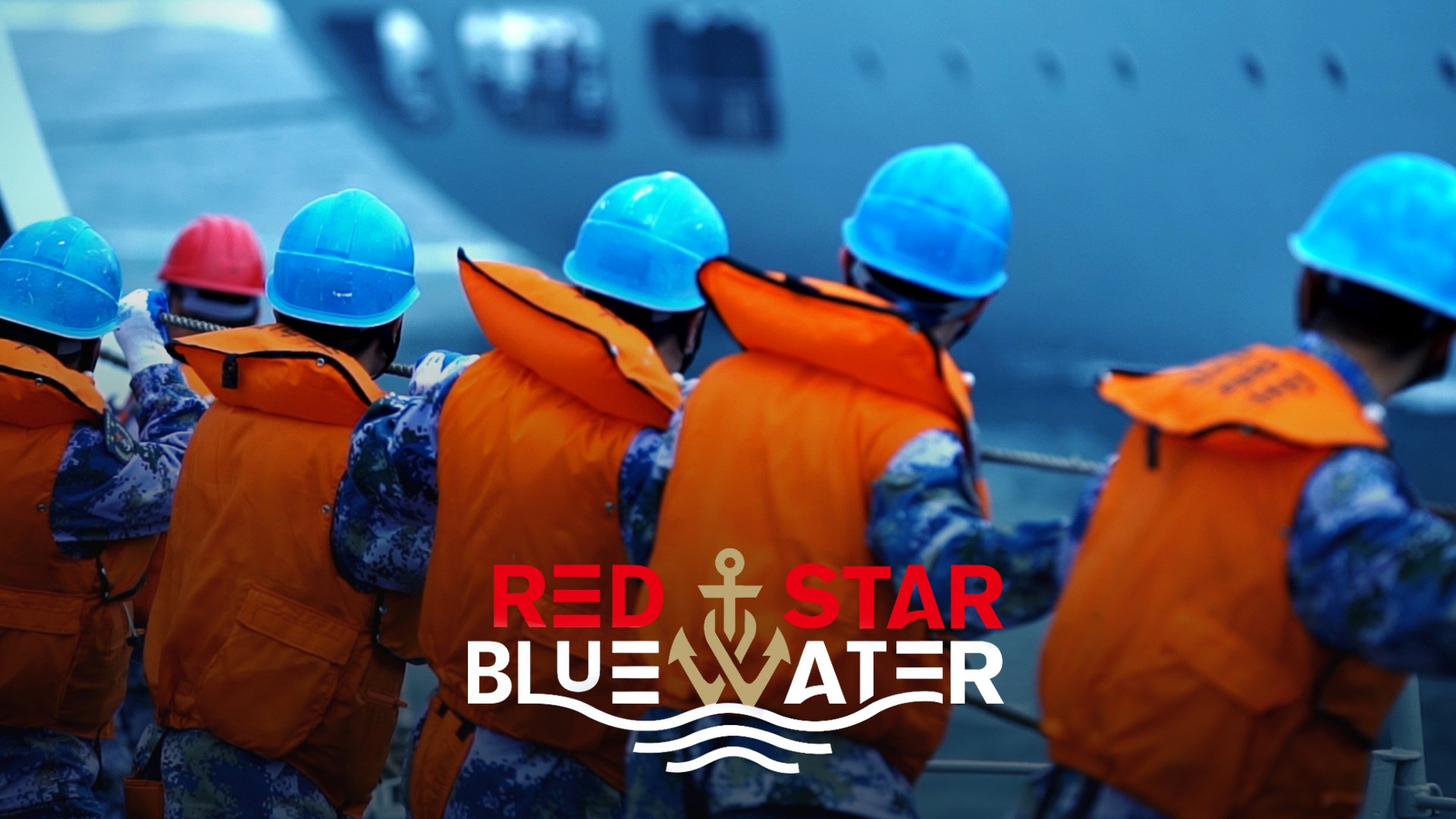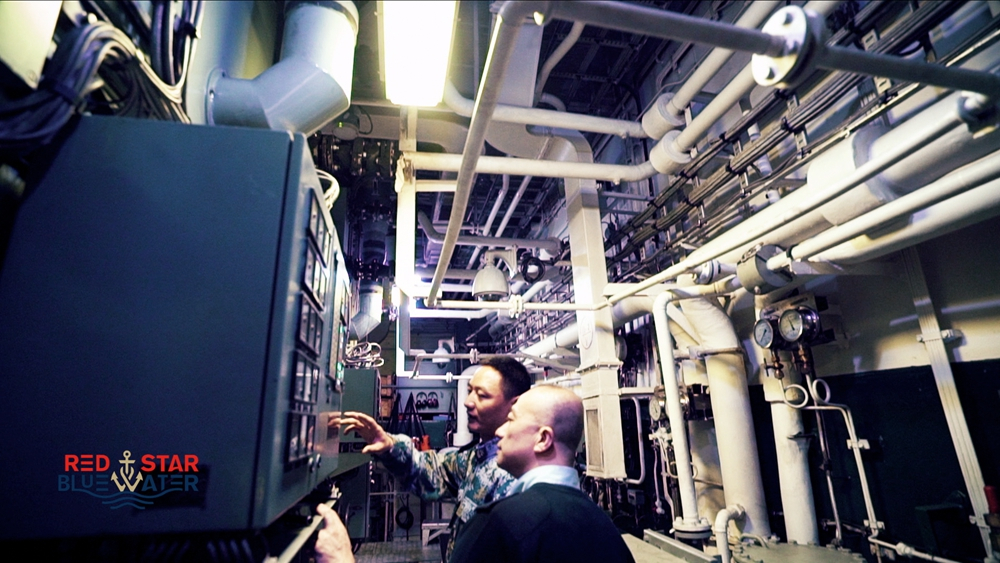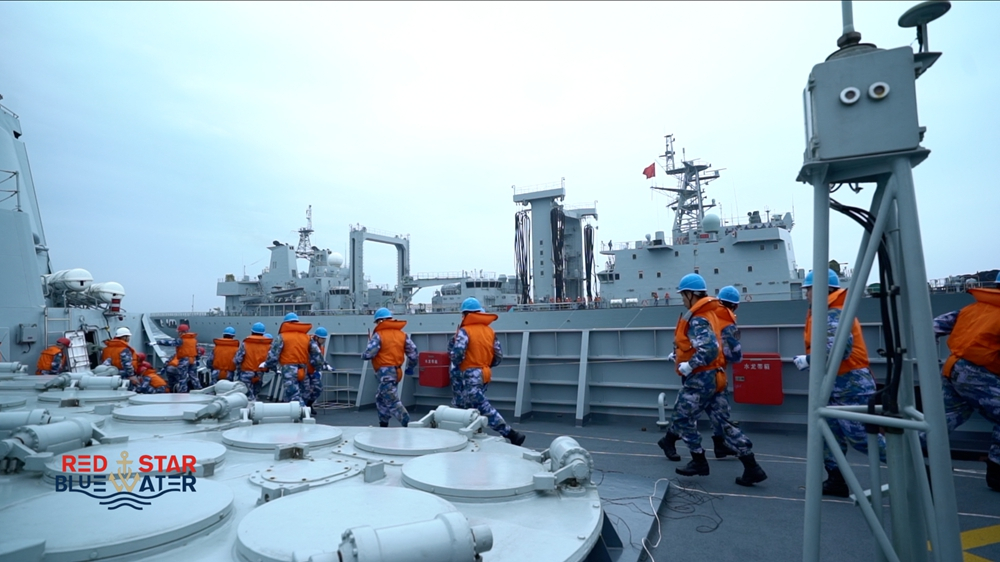
Domestic
11:44, 17-Apr-2019
Navy Supply Chain
By Han Bin, Huang Xiaodong
03:37

For a long time, replenishment and logistical support was a bottleneck that kept the People's Liberation Army Navy (PLAN) from open water missions. Increasing far sea operations means the fleet needs to be logistically self-supporting.
The permanent facility at the Djibouti base is only the beginning of its overseas logistics system support. Additional replenishment warships will be built, along with increased civil-military integration.
More than a hunk of steel
"Replenishment during flotilla maneuvers has been regularized. With the increase in blue-water training, the ships are sailing farther and farther and must be replenished," says Wang Sheqiang, Commander of the Fleet Training Formation.
Being embedded on a training mission, we got a chance to see how things are done. Wang told us the multi-ship, horizontal and vertical replenishment method is now normal practice and a major subject in their training. Practice is one thing, sufficient support is another. So the PLAN is now prioritizing supply ships in its expansion plans.

Dou Jichao talks with CGTN reporter Han Bin at the power control room of 052C type destroyer Changchun. /CGTN Photo
Dou Jichao talks with CGTN reporter Han Bin at the power control room of 052C type destroyer Changchun. /CGTN Photo
"Heart" of the ship
"A ship is a systematic chain with tight coordination. If one link is broken, it can ruin the whole task," says Dou Jichao, Diesel Propulsion team leader of the PLANS Changchun.
We were given access to the "heart" of the Changchun, China's 052C type destroyer. Dou works at the bottom of the ship — the power control room. The generation equipment supplies power to ships, including some safeguards for living facilities. He says his job is hidden from the crew, but it's key for the mission.

A replenishment training during flotilla maneuvers at the East China Sea. /CGTN Photo
A replenishment training during flotilla maneuvers at the East China Sea. /CGTN Photo
An army marches on its stomach
"The leaders' demands for logistic support are very high. We are constantly improving ourselves," says Zhang Mengfei, Culinary Team Leader of the PLANS Changchun.
When Zhang joined the navy, he was disappointed at his assignment. Then he learned all the cooking skills needed on board. Little by little, he's come around to another way of thinking. He gets great satisfaction from the praise of the crew. And as food costs steadily rise, the cooks compete to serve up the best on a budget.

SITEMAP
Copyright © 2018 CGTN. Beijing ICP prepared NO.16065310-3
Copyright © 2018 CGTN. Beijing ICP prepared NO.16065310-3